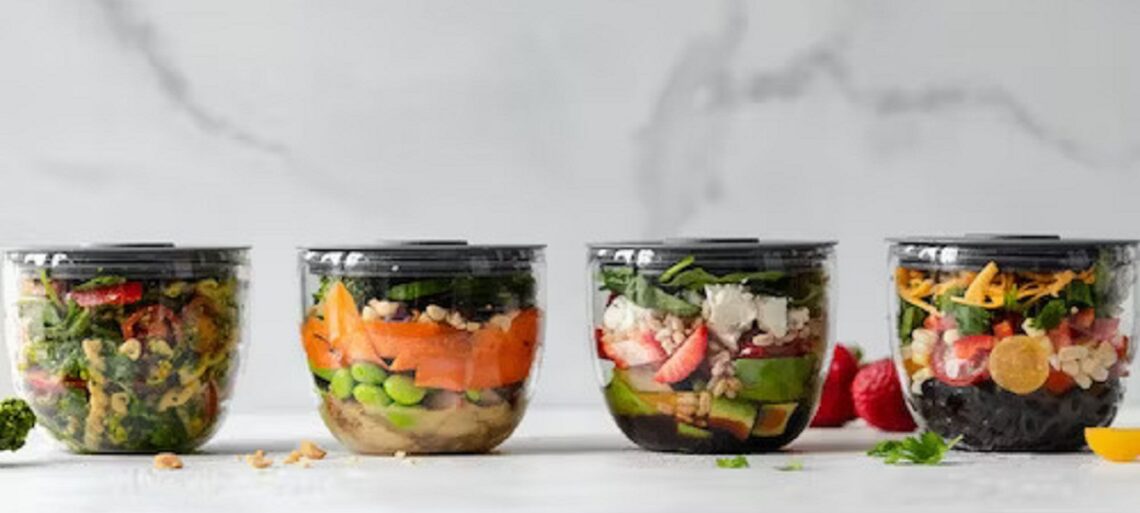
7 Day Meal Plan for Ulcerative Colitis
Crafting a well-balanced and soothing 7-day meal plan for ulcerative colitis can play a pivotal role in managing symptoms and promoting digestive health. Living with ulcerative colitis can present unique challenges when it comes to maintaining a balanced and nutritious diet. Individuals with this inflammatory bowel disease often experience flare-ups that can be triggered by certain foods. However, with careful meal planning, it’s possible to alleviate symptoms and support overall health. This 7-day meal plan is designed to provide essential nutrients while minimizing potential triggers for those with ulcerative colitis.
Day 1: Gentle Start 7-day meal plan for ulcerative colitis
- Breakfast:
- Oatmeal with mashed banana and a sprinkle of ground flaxseeds.
- Green tea for a gentle start.
- Lunch:
- Grilled chicken breast with quinoa and steamed carrots.
- Mixed green salad with cucumber and a light olive oil dressing.
- Snack:
- Greek yogurt with a handful of blueberries.
- Dinner:
- Baked salmon with sweet potato and sautéed spinach.
- For extra fiber, serve brown rice on the side.
Day 2: Fiber-Friendly Choices
- Breakfast:
- Smoothie with spinach, pineapple, and a scoop of protein powder.
- Toast with whole grains and a thin layer of almond butter.
- Lunch:
- Turkey and avocado wrap with a gluten-free tortilla.
- Mixed berries on the side.
- Snack:
- A handful of walnuts to get your omega-3 fix.
- Dinner:
- Quinoa-stuffed bell peppers with lean ground turkey.
- Steamed broccoli for added vitamins.
Day 3: Gut-Healing Foods
- Breakfast:
- Scrambled eggs with diced tomatoes and sautéed spinach.
- A slice of whole grain toast.
- Lunch:
- Supper will be lentil soup and whole grain crackers.
- A little apple to provide a little sweetness.
- Snack:
- Carrot and cucumber sticks with hummus.
- Dinner:
- Grilled shrimp with brown rice and asparagus.
- Mixed greens with a lemon vinaigrette.
Day 4: Low-Residue Options
- Breakfast:
- Almond milk chia seed pudding topped with strawberry slices.
- Green tea or herbal tea.
- Lunch:
- Quinoa salad with cherry tomatoes, cucumber, and feta cheese.
- Grilled chicken strips for added protein.
- Snack:
- A small serving of lactose-free cottage cheese.
- Dinner:
- Brown rice, bok choy, and stir-fried tofu.
- Steamed carrots on the side.
Day 5: Emphasizing Probiotics
- Breakfast:
- Banana and peanut butter smoothie.
- Whole grain English muffin with a light spread of cream cheese.
- Lunch:
- Baked cod with mashed sweet potatoes.
- Mixed greens salad with a simple olive oil and lemon dressing.
- Snack:
- Kiwi slices topped with chia seeds.
- Dinner:
- Quinoa and vegetable stir-fry with lean beef strips.
- Steamed broccoli and cauliflower.
Day 6: Balancing Macronutrients
- Breakfast:
- Overnight oats with almond milk, topped with sliced almonds and raspberries.
- Herbal tea for a soothing start.
- Lunch:
- Spinach and feta omelet with a side of gluten-free toast.
- Mixed berries for dessert.
- Snack:
- Handful of grapes with a small serving of lactose-free cheese.
- Dinner:
- Grilled chicken with baked sweet potato fries.
- Steamed green beans on the side.
Day 7: Hydration and Simplicity
- Breakfast:
- Yogurt parfait with granola and sliced peaches.
- Green tea for added antioxidants.
- Lunch:
- Brown rice dish topped with salsa, avocado, and black beans.
- A side of sliced oranges.
- Snack:
- Rice cakes with a thin layer of almond butter.
- Dinner:
- Baked tilapia with quinoa and roasted Brussels sprouts.
- Mixed greens salad with a balsamic vinaigrette.
General Tips
- Hydration is Key: Drink plenty of water throughout the day to stay well-hydrated and promote digestion.
- Portion Control: Pay attention to portion sizes to avoid overeating and putting excess stress on your digestive system.
- Food Diary: Keep a food diary to track your meals and identify potential trigger foods.
- Limit Trigger Foods: Avoid foods that may exacerbate symptoms, such as spicy foods, caffeine, and high-fat items.
- Consult with a Dietitian: Every individual’s response to food can vary. It’s advisable to consult with a registered dietitian to create a personalized meal plan that suits your specific needs and preferences.
Conclusion
This 7 Day Meal Plan for Ulcerative Colitis plan is just a starting point, and individuals with ulcerative colitis should personalize it based on their specific dietary tolerances and preferences. It’s essential to pay attention to how your body responds to different foods and make adjustments accordingly. Additionally, staying hydrated, managing stress, and consulting with a healthcare professional or nutritionist are crucial components of an overall strategy for managing ulcerative colitis through diet.
Visit here : Nutrition | Wellness
Kennedy Williams
Kennedy Williams is a dedicated health writer committed to empowering readers with valuable insights into well-being. With a strong foundation in medical journalism, Kennedy navigates the complexities of health topics, making information accessible and engaging. Her articles provide a blend of evidence-based research and practical advice, catering to individuals seeking informed choices for a healthier lifestyle. Kennedy's passion for health extends beyond words; she actively promotes wellness, aiming to inspire positive transformations in her readers' lives.




